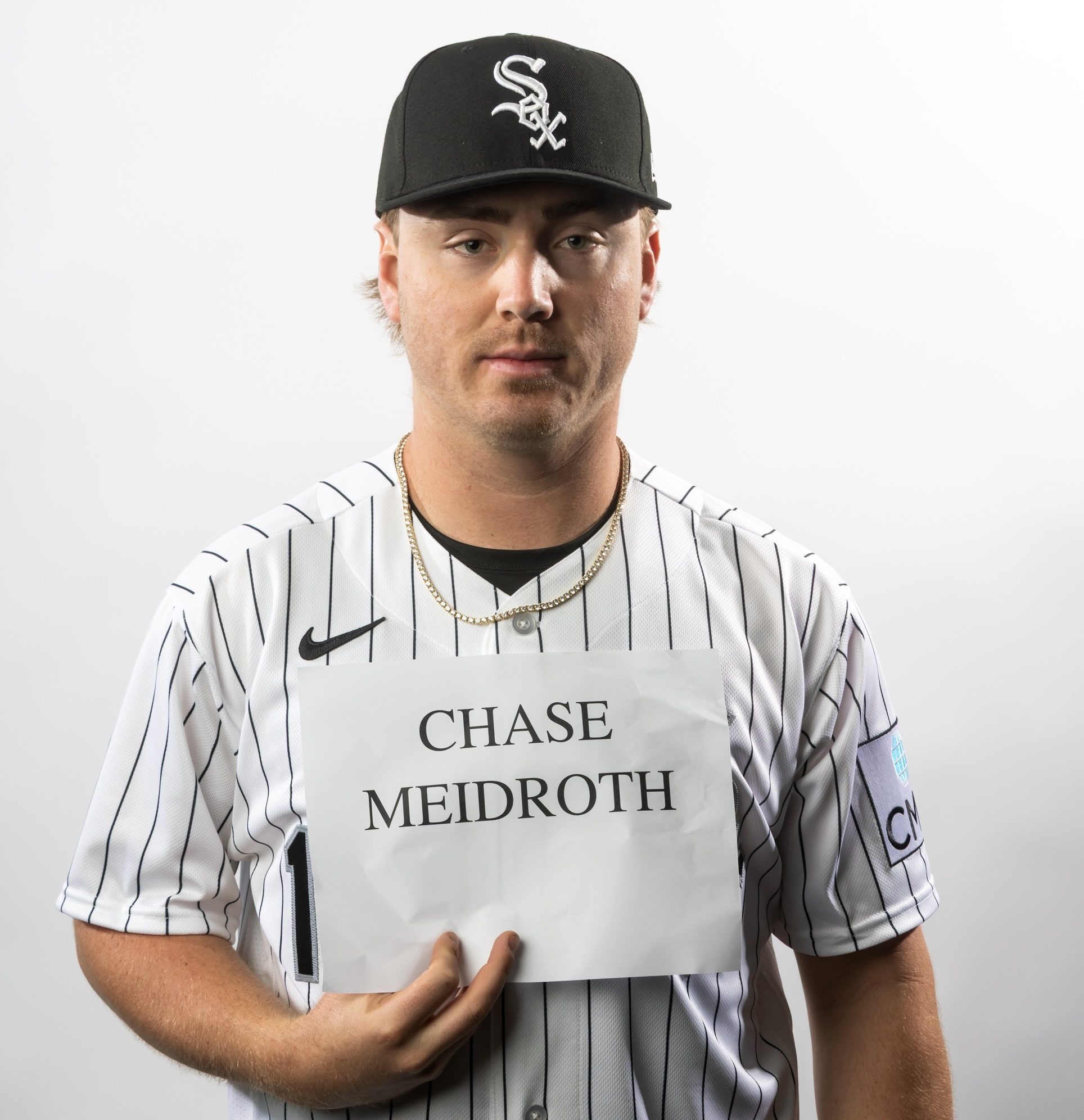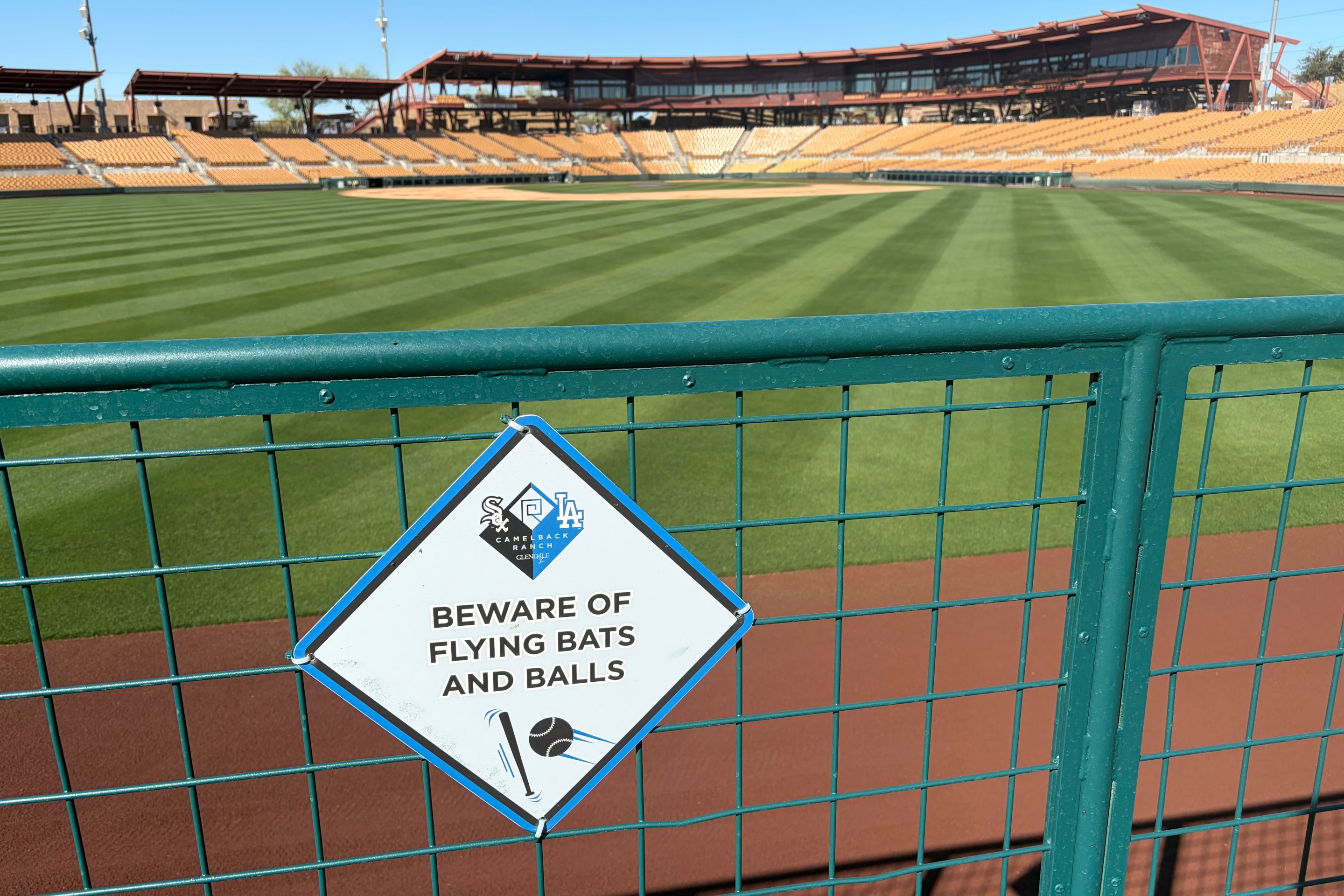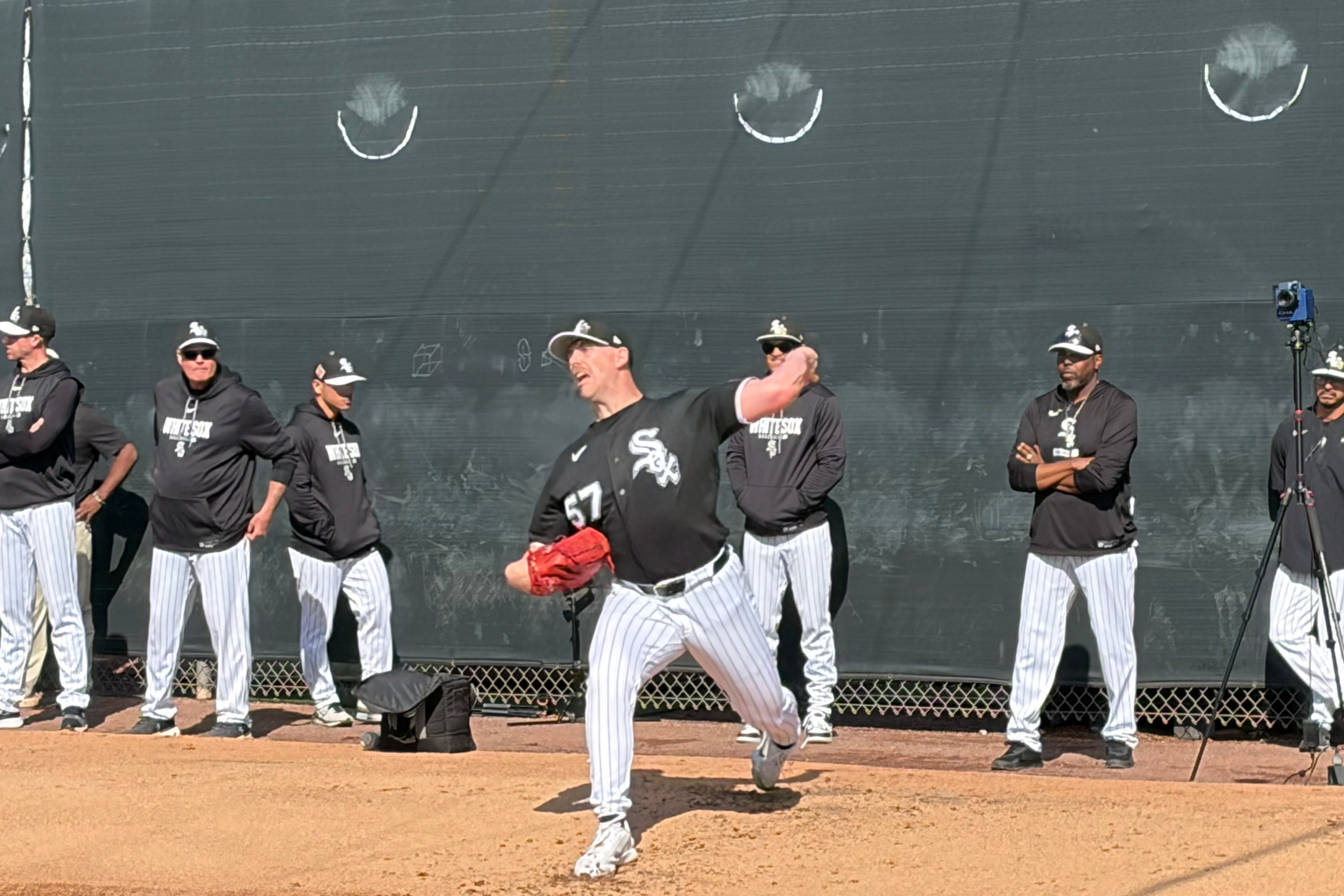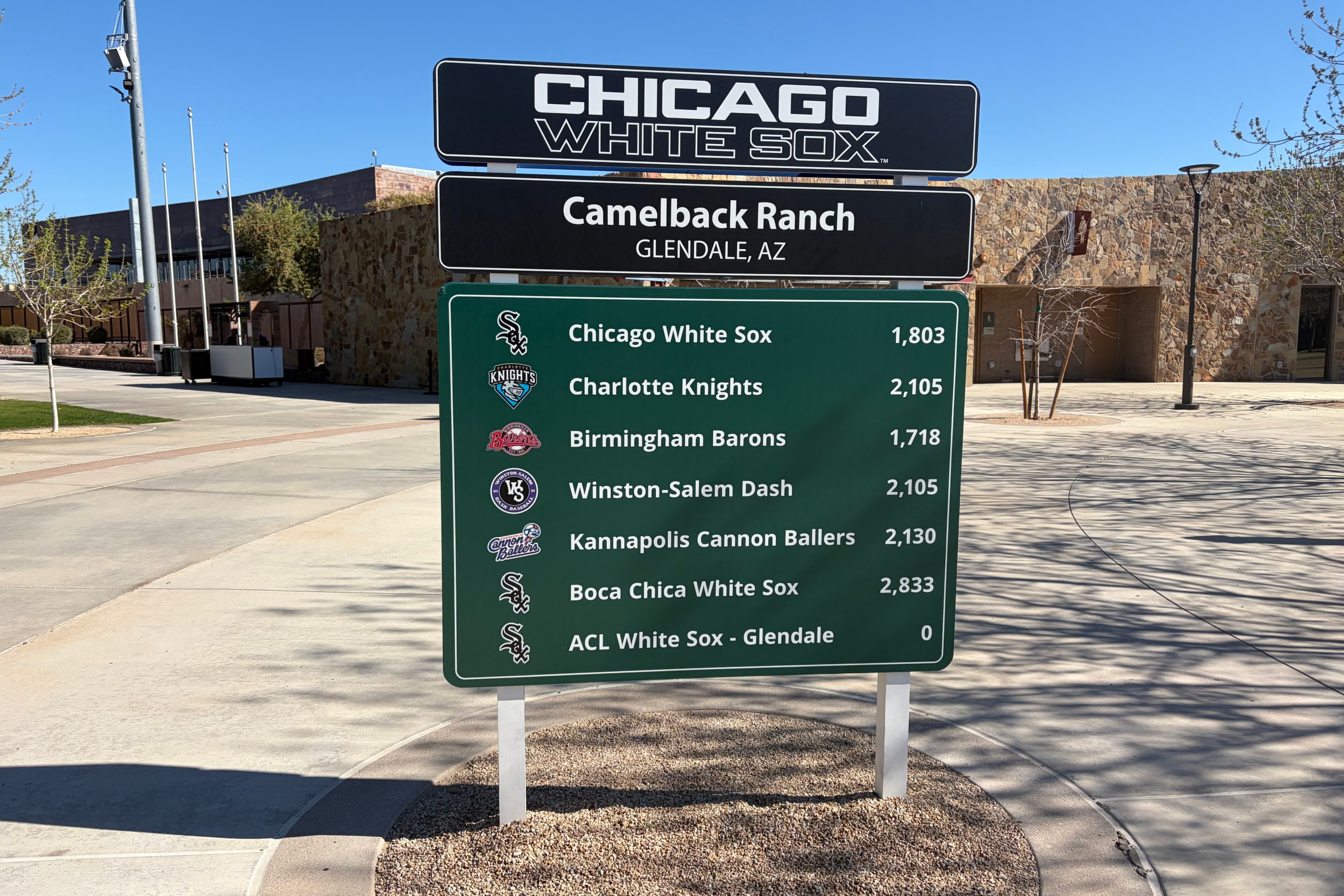WASHINGTON, D.C. -- Still wearing a good portion of his in-game gear after sealing the final out of a wild 10-9 victory on Friday, reliever Grant Taylor was torn between his still-pulsing adrenaline and rookie politeness.
"We've got 100 losses," Taylor said, pausing to consider tactful words. "That could be really hard for us, and we could really get down in the dumps and we could've pissed this year away. But I think there are a lot of guys in here who are continuing to get after it."
"We set our goals for the second half and we responded very well," said Miguel Vargas. "We learned how to win games. We learned how hard it is, what it takes to win games, win series against good teams. If we know that and can carry it to next year, we're going to be in a good spot."
The 2025 White Sox were bad, the worst team in the American League by record, and are a good bet to pick first overall in next year's draft in recognition of how awful they've been. They were the level of bad where everyone in a Sox uniform has to couch their optimism with an acknowledgment.
"We're not happy with the win and loss record, never will be satisfied with a season like this," said bench coach Walker McKinven. "Taking this job, coming in you knew the spot they were in, probably not winning the division in 2025. But since we've got in here, been able to assess some things internally that we've improved upon drastically."
McKinven rooted his sense of improvement in the strides taken by a host of rookies who have debuted this year or completed their first full season in the majors, in the de-cluttering of messaging from the coaching staff to the players. And such stipulations are necessary, because even a team that won 19 more games than the previous season is light on the typical indicators of a higher quality of play.
Based on run differential, the Sox improved even more than their record indicates, but only because of their mystifyingly bad 15-36 mark in one-run games; often a yardstick for how well a team can execute in game-changing moments. With runners in scoring position, their batting average, wRC+, and just total RBI were all bottom-five in MLB. Their defense committed the third-most errors in the league, their pitching staff has issued the second-most walks. Maybe it's due to the pair of 34-year-old outfielders that they signed in free-agency and intentionally elevated to leadership roles in the clubhouse, but the White Sox don't actually statistically rate as one of the youngest teams in baseball either, at least to any notable degree.
But especially when it comes to the culture of a team, stats don't always tell the whole story. The Sox lineup opened on Sunday how it often did down the stretch, with Vargas--at the tail end of his first full season in the majors--being the only non-rookie occupying the first five slots.
"It's probably the youngest team I've ever been on, least experienced coming into the season," said Mike Tauchman. "Because of that, there's been a lot of opportunity for guys to come in and establish themselves, to learn what it takes to be a productive player in this league. That's a process. There's always going to be growing pains with it. You never stop growing as a player, in my opinion. The young players we've had have shown tremendous growth this year."
Tauchman, whose locker was never situated far from Colson Montgomery and Chase Meidroth in both Chicago and Arizona, was viewed as the straight-talking vet who could be counted on to speak up about team standards. Manager Will Venable credited Taylor with helping the coaching staff develop those standards, "their non-negotiables," but the veteran outfielder closed out his career hewing close to his reputation as a lead-by-example type.
"Sometimes they just need somebody to listen to them," Michael A. Taylor said. "We're all in this together, I don't think it's exclusively veteran players who have a voice, I've learned stuff from younger guys as well."
Similarly, Martín Pérez embraced the idea of serving as a mentor figure for the pitching staff from the moment when he was signed in January, although injury left him demonstrating of the resilience necessary to survive in this business in a manner he'd sooner avoid. His insistence upon the Sox as a playoff-caliber outfit read a bit overzealous, but that landed fine with rookies who have been sold on the idea that they're coming in on the ground floor of something.
"As a young guy, you need to learn how to do things at this level, whether it's on or off the field, and being able to have them to steer us down the right path of learning, you know, how to either bounce back or learning how to continue to win is unbelievably necessary," said Mike Vasil. "It's just awesome to have a group of young guys that are willing to listen as well and be a part of that."
"The vibes are good in the clubhouse, we're all playing hard and we come out every day playing to win," said Kyle Teel. "The end of this season is a good taste of what it's going to look like next season, where if we finish strong, it will carry over into next year."
Ironically, the takeaways that might have landed most flush with Sox rookies might not have anything to really do with any of what their clubhouse veterans actually said.
"What they do to prepare their bodies to get ready to play every single night, I've seen some crazy things, where they're pretty banged up," said Colson Montgomery. "But you know, our job is to play."
This would admittedly be a cleaner narrative of some wizened role players guiding a talented young core to a big league level of play and comportment had the Sox and their bargain bin pitching staff not staggered to the finish, losing 12 out of their final 15 games, just when avoiding a 100-loss season had seemed like a potential benchmark to celebrate. But the Sox insist they're focused on larger trends.
"All of us are going to feel the results, the wins and losses," said Venable. "But as you reflect, it gives you an opportunity to detach from those results and really focus on the really consistent momentum I feel like we built in terms of the way we go about our business, the vibe in the clubhouse, the way that we compete, the way that these guys run down the line. Of course we aren't cool with the record, we're still positive about the momentum."
Especially the momentum down the first base line.
"One of our foundational things that is brought up often within the group is that we're going to run hard out of the box, and we're going to finish every play that way, and we're accountable when we don't." McKinven said. "We've had our core philosophies that we've put in front of players since spring training, and of course the clubhouse gets turned over, and Will's done a nice job of presenting those to every single player that's walked through the clubhouse and setting the standard."
Of course, the Sox put 62 different players on the field -- one shy of the franchise record they set last season. So Venable has long been off-book for his presentation of non-negotiables for new players, and third-base coach Justin Jirschele could probably run through the team's signs in his sleep at this point. But despite the anonymity such large numbers can lend, Sox players claim they're adhering to those standards for the sake of one another, the product of an environment where embracing diversity aids the enforcement of a common standard.
"I want to be the person that I wanted or I needed when I first got to the big leagues," said Davis Martin. "We've done a good job of the young guys coming up and letting them be themselves. Go about your business, do what you need to do to get ready to go for a game. Whatever you need to do to make you the best version of yourself that day, go ahead and do it. I think that's allowed personalities to seep through and everybody can go out there and be themselves out there. No one has to try to conform to a certain way and I think that's a big help."
"Being able to be a part of a major league baseball team and mold what your identity is, is really cool, and it's up to us to do that," said Vasil, who certainly impressed his personality upon the pitching staff. "It's up to one another, to have that tough conversation if need be, or push one another to get over that edge. I really think that's what it comes down to. You can train all you want, but the training at some point is going to really mean nothing. At some point you're going to have to go out there and do it, and that looks different for everybody."
Team culture can be a fickle thing, though. Rival AL Central managers spent the down years of the previous White Sox rebuild remarking on how hard those teams played under Rick Renteria, admiring how a cadre of players fighting for their place in the majors with no chance of contending had rallied under a shared ethos. If something similar is taking place here with this group that Venable takes great pains to insist is high character, most reading here will recall that the culture changed both dramatically and rapidly as the last White Sox core’s situation shifted, and it's a not a given the mentality that was embraced for this season will extend to future one. The torch won’t carry itself.
"I had some really great veterans in my career, and being able to share their wisdom -- and the one or two things I've picked up along the way -- when you see a guy struggling with something that you struggled with before, that's what it's all about," Tauchman said. "One day, the Kyle Teels and the Chase Meidroths and the Colson Montgomerys, they'll be the old guys in the room, and they'll pass on what they've learned. That's the great thing about baseball, you can trace lessons and history back to the beginning of the game."
Another great thing about this game is that everyone can have their own opinion of it, including a different view for where the responsibility lies going forward for making sure there are better White Sox teams in the future that fight as hard as this one did.
"Honestly I think identity comes from the top down," said Michael A. Taylor. "Maybe it's still being built by [Chris Getz], Will and those guys. They're the ones driving the boat. They set the standards, they set the expectations, and then we're here to make that happen and hold each other accountable. I think this organization is still in the process of doing that, and these young guys will be the ones to carry that through."






